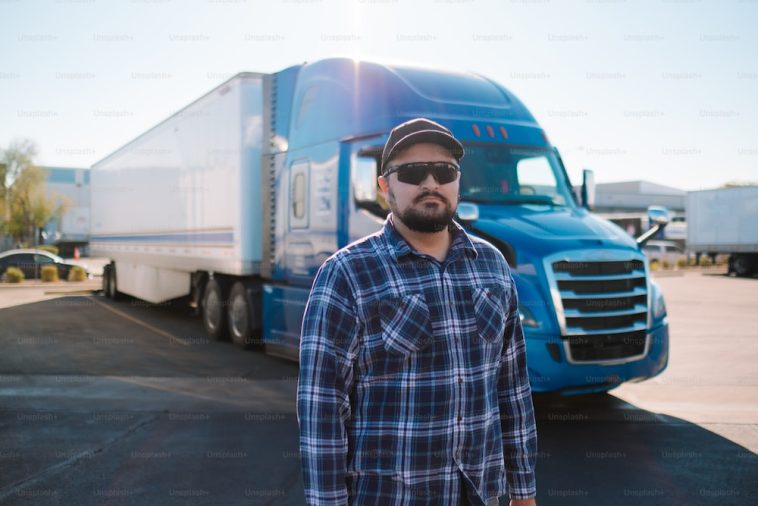Introduction.
Starting your own trucking business can be a highly rewarding journey, but it isn’t something that can be done on a whim.
The trucking industry plays a vital role in the U.S. economy, transporting nearly 72% of all freight in the country.
That’s a big slice of the logistics pie, and for good reason: without trucks on the road, supply chains would come to a grinding halt, leaving grocery stores empty and products out of reach. But is launching your own trucking company the right move for you?
I’ve written this post to break down exactly how to get started, along with the potential benefits and drawbacks that come with it.
I want to make this topic simple to understand, whether you’re curious about the licenses required, the costs involved, or the day-to-day challenges. There’s a lot to cover, so let’s roll through it step by step.
Why Start a Trucking Business?
Before diving into the “how,” it’s essential to know the “why.” First, there’s a steady demand for freight transportation.
As the saying goes, “If you got it, a truck brought it.” It’s estimated that the trucking industry generates over $800 billion annually, so even a small slice of that can be a game-changer.
Beyond revenue, trucking offers flexibility. You can run a small operation with just one truck or scale into a fleet over time. It’s a business that has growth potential if you’re willing to put in the work.
On the flip side, trucking isn’t all about highway views and steady paychecks. It comes with long hours, tough regulations, and high overhead costs, like vehicle maintenance, fuel, and insurance.
How Do I Start a Trucking Business In The US?
1. Write a Business Plan.
Think of your business plan as a roadmap. It outlines your business structure, target market, budget, and long-term goals.
Make sure you cover financial projections, like expected revenue and expenses. Remember, banks and lenders will want to see this if you ever need financing.
2. Register Your Business.
Choose a business structure that fits your needs: sole proprietorship, LLC, or corporation. Many trucking companies prefer an LLC because it protects personal assets from business liabilities. After that, register your company name with the appropriate state authorities.
3. Get Your USDOT and Operating Authority.
To operate legally in the U.S., you’ll need a USDOT (United States Department of Transportation) number.
If you plan to haul freight across state lines, you’ll also need to apply for operating authority from the Federal Motor Carrier Safety Administration (FMCSA). This process involves a fee and could take weeks, so plan accordingly.
4. Buy or Lease a Truck.
Here’s where a significant chunk of your budget goes: purchasing a truck. A new, high-quality rig can cost upwards of $150,000, but leasing is another option if you don’t want to buy outright. Be sure to choose a reliable truck that suits the type of cargo you’ll be hauling, and don’t forget about maintenance costs.
5. Secure the Right Insurance.
Insurance is non-negotiable in trucking. You’ll need liability, cargo, and physical damage coverage, among others.
Expect to pay around $8,000 to $12,000 per year for a single truck. Rates depend on your driving history, the type of cargo you carry, and your operating area.
6. Get the Necessary Permits and Licenses.
Depending on the freight you transport, you may need specific permits, like a Hazardous Materials (HazMat) license. States also have their regulations, so double-check you’re compliant everywhere you plan to operate.
7. Set Up a Maintenance Plan.
Trucks need regular inspections and maintenance to keep running smoothly. Setting up a preventive maintenance schedule can save you from costly repairs later. Plus, it’s a legal requirement in most states to keep your vehicles in good condition.
8. Find Loads and Get Paid.
You can find freight through load boards, freight brokers, or by forming relationships directly with shippers.
Load boards like DAT and Truckstop.com are a good place to start.
Remember that cash flow can be an issue in the trucking business, as shippers may take 30-90 days to pay. Factoring companies can help by advancing you the money, but they’ll take a cut of your earnings.
Pros and Cons of Starting a Trucking Business
Pros
- High Demand: There’s always work in an industry that transports most of the nation’s goods.
- Profit Potential: If you play your cards right, trucking can be lucrative. Owner-operators can make anywhere from $100,000 to $200,000 annually.
- Flexibility: You have control over the routes you drive and the type of loads you haul.
- Room to Scale: Start with one truck and expand as you gain experience and capital.
Cons
- High Startup Costs: The upfront investment can be steep, especially for equipment and insurance.
- Tough Regulations: Trucking is heavily regulated, and staying compliant can be a headache.
- Long Hours: Be prepared for long stretches on the road, which can be physically and mentally exhausting.
- Unpredictable Income: Your earnings may fluctuate due to fuel prices, freight demand, and other market factors.
Frequently Asked Questions
1. How much does it cost to start a trucking business?
On average, expect to spend $10,000 to $20,000 to get started if you lease a truck. If you’re buying a truck, this figure jumps to $80,000 to $200,000. These costs include permits, insurance, and registration fees.
2. Do I need a CDL (Commercial Driver’s License) to start a trucking company?
You don’t personally need a CDL if you plan to hire drivers, but someone driving the truck must have one. It’s a good idea to get a CDL if you plan to be an owner-operator.
3. How do I find loads for my trucks?
You can use load boards like DAT and Truckstop.com, work with freight brokers, or network with local shippers to secure loads.
4. What are the main challenges in the trucking industry?
Some common challenges include fluctuating fuel prices, driver shortages, strict regulations, and long hours on the road. Managing cash flow is another significant hurdle.
5. Is trucking a good business for beginners?
It can be, but it’s not easy. The trucking industry has slim profit margins, and it takes careful planning and management to succeed. Beginners should do thorough research and consider working as a driver or in a trucking-related job before starting their own business.
Conclusion
Starting a trucking business is no small feat. It takes careful planning, a significant investment, and a lot of hard work.
But for those who are passionate about being their own boss and navigating the open roads, it can also be highly rewarding.
With demand for freight transportation showing no signs of slowing down, there’s plenty of opportunity out there for determined entrepreneurs.
Do you think you’re ready to take the wheel and drive your business toward success? What challenges do you think you’d face, and how would you overcome them?





GIPHY App Key not set. Please check settings